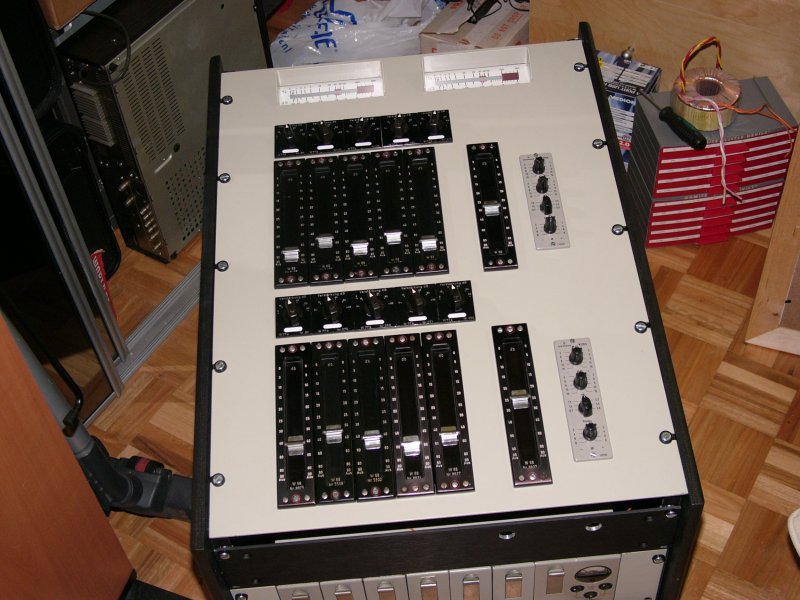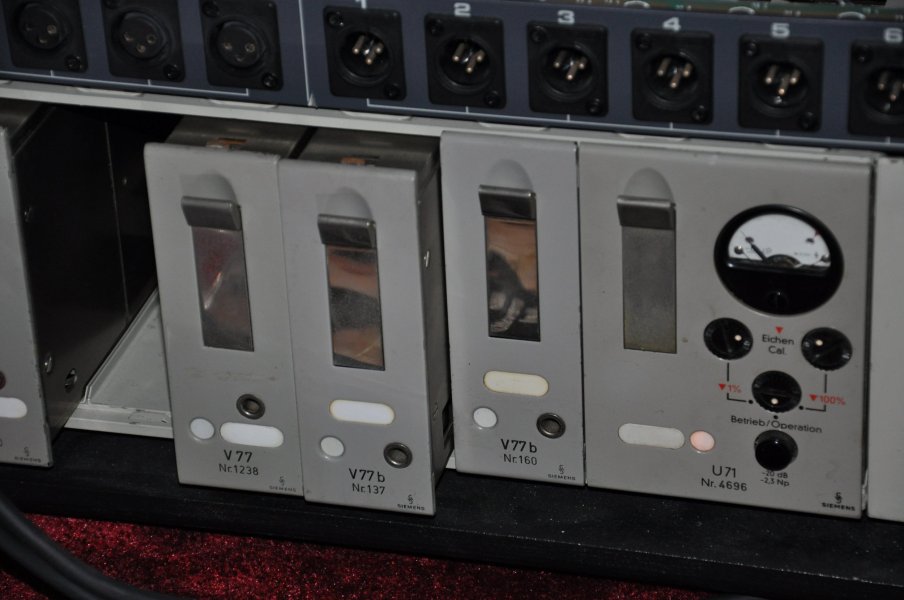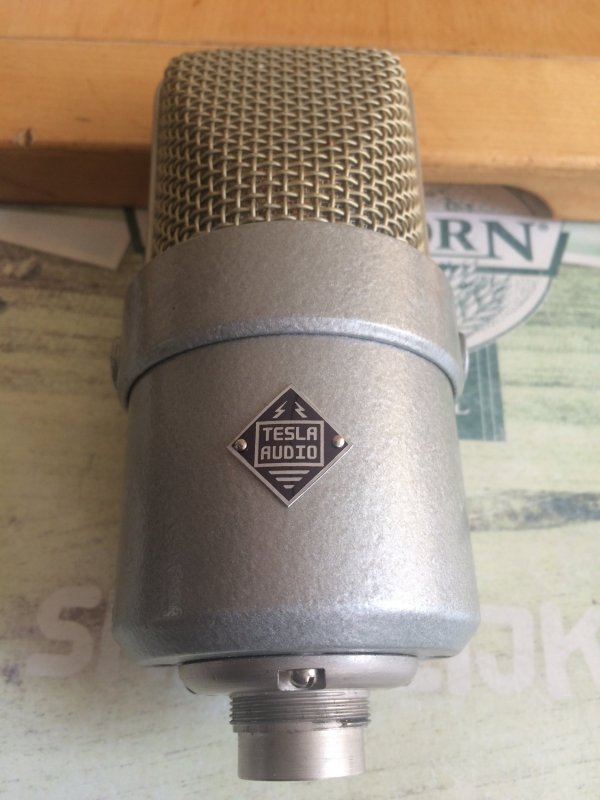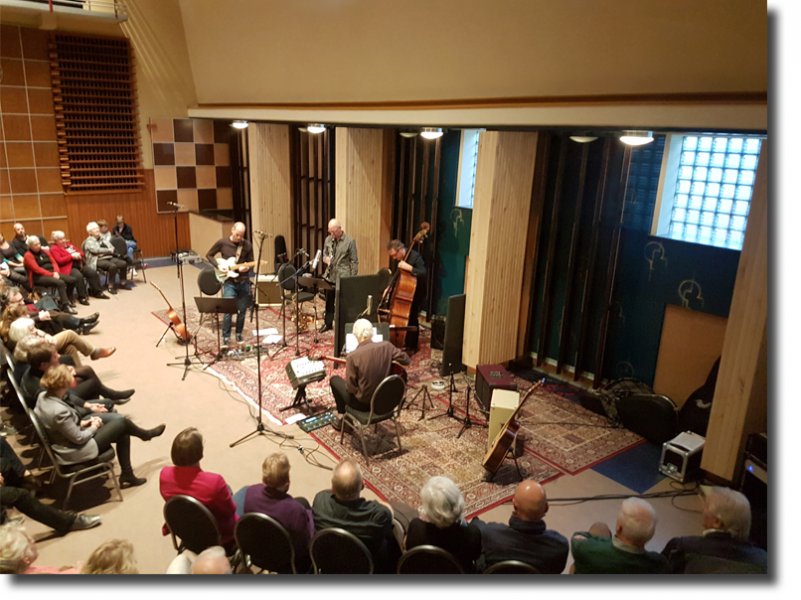What does the source sound like...
- Thread starter Gregadd
- Start date
You are using an out of date browser. It may not display this or other websites correctly.
You should upgrade or use an alternative browser.
You should upgrade or use an alternative browser.
Why?Just learning, to use a word that pleases a lot of people in this forum!
I have never spent time thinking about 'is this recording identical to the source event'....
I am not aware of any system that can reproduce a perfect copy of a recording. Indeed I am not aware of a perfect recording. If you are aware of either please enlighten me. So the question how close can we get? If we have an artist(s) and recording engineer using the best equipment we can do pretty well.
What say you?
...
I only think about (1) if I like the music recorded and (2) is it a good recording.
(1) Is subjective
(2) Is both subjective and *objective
*there is such a thing as a good recording. If that is the debate then count me out...
Coming back to your OP and some subsequent posts you seem to be primarily concerned with quality of the recordings IME many if not majority of high end systems are the bottleneck and not the recording and the playback media. Of course plenty of poor quality media but there are a lot of very good to incredible sounding recordings that aren't reproduced correctly. If you recall back in the 80's when CD took over the planet digital sound was harsh and horrible and we all thought that it's the software when in fact by mid to late 90's when good hardware started trickling in we realized that the fault wasn't software but playback hardware. In fact many of those early jazz and classical analog transfers to digital sound wonderful, certainly much more natural than the later 16 & 24 bit remastered versions of those recordings which sound small and "digital" in comparison.And why should you care?
What is in the groves, bits and magnetic pulses?
Whether your goal is musicality, accuracy or both the question is necessary to know exactly what the recording engineer captured?
Most of us have been to at least one product demonstration where the producer claimed to be able to vouch for the accuracy because he was present at the recording. I think the last time it happened it was Joe Sample and the demo was by Terry of Magico Q5 at overture Audio.IIRC
One would hope that accuracy and musicality are the same thing. I wish. We know instruments, voices and vary wildly. Not to the mastering engineers very different goals. How do we then asses musicality and accuracy?
It would appear then we can determine the sound of voices, )instruments and recording halls(studios). Accuracy of course is a little more difficult.
We can have some idea of what Yo-Yo Ma playing his cello live at Carnegie Hall sounds like. I recall that Dee Dee Bridgewater and Branford Marsalis with his father both put out CDs respectively. When they subsequently appeared at Blues Alley they played the exact same music.(I was not happy)
If we work at it we can come reasonably close to musicality.
I am not aware of any system that can reproduce a perfect copy of a recording. Indeed I am not aware of a perfect recording. If you are aware of either please enlighten me. So the question how close can we get? If we have an artist(s) and recording engineer using the best equipment we can do pretty well.
What say you?
There was a time I noted type of instrument, recording venue and even microphones and cutting lathes. It just did not seem reasonable.
The same is true of vinyl front ends the majority, at least 98%, don't the have the resolution to retrieve the information buried in the grooves, you'll be amazed what's possible and how great records can be hearing them on a capable turntable. Of course the rest of the playback chain is loosing parts of the already limited information retrieved by the front end. IMO the playback system is a bigger concern than recording quality and it's almost always ignored ignored in these conversations. One can't really judge a recording without an accurate high resolution playback system.
david
I started this thread because nobody debates on the merits anymore. It is extremely difficult to forr e anyone to commit to the merits of an argument. If only I could remove some the weapns.
Audiophools
Audiophiles love distortion
Audiophiles have golden ears
Audiophiles hate science
Reviewers are on the take, or
incompetent
Ad hominem attacks
"Whataboutism"
Etc.
If only we could get to the point.
As the funk group Funkadelic once said in argument overwho was the best band., "Let's take to the stage.@."
Audiophools
Audiophiles love distortion
Audiophiles have golden ears
Audiophiles hate science
Reviewers are on the take, or
incompetent
Ad hominem attacks
"Whataboutism"
Etc.
If only we could get to the point.
As the funk group Funkadelic once said in argument overwho was the best band., "Let's take to the stage.@."
my emphasisI started this thread because nobody debates on the merits anymore. It is extremely difficult to forr e anyone to commit to the merits of an argument. If only I could remove some the weapns.
Audiophools
Audiophiles love distortion
Audiophiles have golden ears
Audiophiles hate science
Reviewers are on the take, or
incompetent
Ad hominem attacks
"Whataboutism"
Etc.
If only we could get to the point.
As the funk group Funkadelic once said in argument overwho was the best band., "Let's take to the stage.@."
You sound frustated - as if the "weapons" you identify are getting in the way of arriving at a conclusion. Then again, why you started this thread (your motive or intent) is independent from what the thread is about.
I'm happy to discuss based on the 'merits' of the point under discussion. Propositions and a logical argument can lead to a valid conclusion. If the propositions are true we might arrive at a true conclusion. Socrates is a man. All men are mortal. Therefore Socrates is mortal. etc. etc. Usually we debate if an argument's propositions are true.
My frustration with this thread is knowing what is the point under discussion. You ask: "What does the source sound like ..." then couple that with "And why should you care?" - which I interpret as "Why should you care what the source sounds like?" Two separate though possibly related questions but you could answer one without answering the other.
The answer to the first question seems so obvious that I speculate you mean something else by it. But first, what is the denotation of "the source"? Do you mean the source of a recording? The source of the recording is the performance recorded. What does it sound like? It doesn't "sound like" anything, if you mean something to compare to it. It "sounds like" what you would hear if you were in attendance when it was made.
If by "the source" you mean an instantiation of a recording of a performance, like a vinyl record or a CD, the intent of that source is to "sound like" the performance of which it is a recording. That's why someone would buy that recording. But that is intent, not what the record sounds like. Assuming reasonable playback, the vinyl record "sounds like" the performance from which it was recorded - ie.., "the source" described in the previous paragraph. If vinyl records did not "sound like" the performance they purport to represent, say by their cover, people wound not buy them.
So that was pretty easy, eh? We might of answered your second question as well. We should care that the recording "sounds like" the source because that's what we expect from it. I don't play a Beethoven record to hear Jimmy Cliff.
If those are not satisfying answers, then maybe your intent is a different pair of questions?
If your first question really is, for example, "how closely does the recording resemble the performance of which it is a recording" - or how can we tell just how well the recording "sounds like" the source, then ask that question. Well formulated questions may receive well formulated answers, otherwise people will go in all sorts of directions.
For anything finer than the above, "sounds like" is a locution too vague. The point where the thread swerved into "trained listeners" and "training" deserved an intervention.
Fwiw, there is this 246 post thread: "How can we ever truly know if we are hearing exactly what is on the recording?" But maybe you mean something else?
Greg, the degree to which what we hear from our systems sounds like the source, either the original performance or the recording we own of that performance surely varies by the systems we choose and our set up skills.
Some might also say by the choice of what version of the recording we have and the choices the mastering engineer made.
Why someone should care likely depends on what his goals are. Was he at the recording session and is he trying to get what the engineers hear in his living room or does he simply want to enjoy his music collection?
How close it sounds to real in our rooms is highly variable, but I happen to think it all sounds surprisingly close considering the miracle of transportable reproduction. The great is in the last 10%. The true magic is in the last couple %, IMO.
Some might also say by the choice of what version of the recording we have and the choices the mastering engineer made.
Why someone should care likely depends on what his goals are. Was he at the recording session and is he trying to get what the engineers hear in his living room or does he simply want to enjoy his music collection?
How close it sounds to real in our rooms is highly variable, but I happen to think it all sounds surprisingly close considering the miracle of transportable reproduction. The great is in the last 10%. The true magic is in the last couple %, IMO.
Last edited:
"True to the source" can only refer to the source medium we have in hand.
In turn, is the result of an original recording and mastering.
The best we can do is reproduce whatever is contained in that medium.
Expecting to reproduce the actual muscical event is a delusion IMO.
Accordingly, when I (we) say "this system takes you there" I (we) mean that the sound inspires emotions, the excitement of participating in the event.
In turn, is the result of an original recording and mastering.
The best we can do is reproduce whatever is contained in that medium.
Expecting to reproduce the actual muscical event is a delusion IMO.
Accordingly, when I (we) say "this system takes you there" I (we) mean that the sound inspires emotions, the excitement of participating in the event.
Hi DDK,...
The same is true of vinyl front ends the majority, at least 98%, don't the have the resolution to retrieve the information buried in the grooves, you'll be amazed what's possible and how great records can be hearing them on a capable turntable....
david
Can you please be specific about the specific brands one could actually purchase (vs. unobtainium vintage stuff) that are "capable" and would fall into the 2% you are referring to? Per your criteria, would you say, Brinkmann, TW Akustic, and Air Force brands be able to deliver? Thanks in advance
I do record life music in my home occasionally (using unobtanium vintage equipment). But that is no use for anyone here as it is not available for everyone. So this discussion has no meaning other then telling us that you have experienced something really nice.
Better would be to help us getting the same experience you had with obtanium equipment and resources...
Better would be to help us getting the same experience you had with obtanium equipment and resources...
LOL, you want to get me in trouble with that question Caesar, don't youHi DDK,
Can you please be specific about the specific brands one could actually purchase (vs. unobtainium vintage stuff) that are "capable" and would fall into the 2% you are referring to? Per your criteria, would you say, Brinkmann, TW Akustic, and Air Force brands be able to deliver? Thanks in advance
Most of the "unobtatnium" vintage tables are actually obtainium and available you just have to know where to look to find ones in proper working condition. They were all made when LP was king and in some decent quantities too. The check you write for a current production tt of similar performance level is going to be much bigger and less obtanium than the vintage one.Better would be to help us getting the same experience you had with obtanium equipment and resources...
david
Last edited:
I will take what I can get. Is the emotional inspiration based on some real cue? Or is it delusional?"True to the source" can only refer to the source medium we have in hand.
In turn, is the result of an original recording and mastering.
The best we can do is reproduce whatever is contained in that medium.
Expecting to reproduce the actual musical event is a delusion IMO.
Accordingly, when I (we) say "this system takes you there" I (we) mean that the sound inspires emotions, the excitement of participating in the event.
On
With you there, all the way.I will take what I can get.
If "cue" there is, it seems to me empirically to come from the ambiance -- i.e. mid-high frequency sounds captured in the recording of the event which survived the mastering onsloughtIs the emotional inspiration based on some real cue? Or is it delusional?
On
My local High End audio dealer has organized some life recording sessions for a small number of customers at the broadcast studio in Hilversum (main studios in the Netherlands). Here it is explained how and why certain precautions are made (and compromises). Afterwards the recording was finished we then could compare (as far as we still can remember the life sessions).
Naturally it sounded different then expected as the room acoustics getting into a microphone is different then when sitting on a chair somewhere in that same studio. So even when all is set up according to our high end standard and how we want it to sound thrue the speakers at home it needs a lot of considderations and mastering to get it this far.
So then the next question arrises: How much time we can spend setting up a recording to have it "perfect" before the musicians run away?
Michael Moore & Paul Berner plays "Home". All Paul Berner albums 20% off at SOUNDLIAISON.COM - YouTube
Some recording info:
Recorded in Studio Eleven (Hilversum) with a live audience on November 25, 2012.
This recording is specially made by Sound Liaison for and with lovers of high-end audio recordings
Special for those who own high-end audio equipment will have maximum benefit.
What made this record different is that the file is a one to one copy of the master file (96kHz/24bit)
No quality degradation whatsoever. Enjoy!
Used equipment:
Microphones:
Paul: JZ V67
Michael: JZ V67
Ed: Neumann KM84
Peter: Neumann KM84
Main system - Audio Technica 4022 (AB)
Micpre's: RME Micstacy (Analog > MADI)
Microphone cables: Grimm Audio TPR
Master clock: Grimm Audio CC1
Power Conditioner: Shunyata Research
Mixing headphones: AKG 702 / Sennheiser HD800
Mixing speakers: Grimm Audio LS1
Naturally it sounded different then expected as the room acoustics getting into a microphone is different then when sitting on a chair somewhere in that same studio. So even when all is set up according to our high end standard and how we want it to sound thrue the speakers at home it needs a lot of considderations and mastering to get it this far.
So then the next question arrises: How much time we can spend setting up a recording to have it "perfect" before the musicians run away?
Michael Moore & Paul Berner plays "Home". All Paul Berner albums 20% off at SOUNDLIAISON.COM - YouTube
Some recording info:
Recorded in Studio Eleven (Hilversum) with a live audience on November 25, 2012.
This recording is specially made by Sound Liaison for and with lovers of high-end audio recordings
Special for those who own high-end audio equipment will have maximum benefit.
What made this record different is that the file is a one to one copy of the master file (96kHz/24bit)
No quality degradation whatsoever. Enjoy!
Used equipment:
Microphones:
Paul: JZ V67
Michael: JZ V67
Ed: Neumann KM84
Peter: Neumann KM84
Main system - Audio Technica 4022 (AB)
Micpre's: RME Micstacy (Analog > MADI)
Microphone cables: Grimm Audio TPR
Master clock: Grimm Audio CC1
Power Conditioner: Shunyata Research
Mixing headphones: AKG 702 / Sennheiser HD800
Mixing speakers: Grimm Audio LS1
Attachments
Last edited:
Its certainly helpful!Whether your goal is musicality, accuracy or both the question is necessary to know exactly what the recording engineer captured?
You're not going to get a perfect recording of course. IMO the best way to go about this is to make a recording of your own, preferably something you can stand to listen to over and over. Since you were there when it was made, you'll know what its supposed to sound like. If you can, its also helpful to commit the recording to an LP or CD (maybe both) or other digital media so its got portability.I am not aware of any system that can reproduce a perfect copy of a recording. Indeed I am not aware of a perfect recording. If you are aware of either please enlighten me. So the question how close can we get? If we have an artist(s) and recording engineer using the best equipment we can do pretty well.
I have several recordings on LP that I made. With them I can assess almost any system in very short order.
Euphonic distortion
I suppose the most often referred to example is a classic tube amp. A sweet smooth sound that allegedly deviates from the source or reality. You can pick your poison. This can be intentionoal or a by product of the tube characteristic. It depends on your point of reference. As one of my friends argued, "tube Amp is an equalizer."The question ,is distortion is bad if it takes you where you want to be. Some would answer absolutely distortion is always bad even if it produces a pleasing sound. Let us see if we can expose a bit of hypocrisy or at least inconsistency.
Then if a tube amp is bad because it is an equalizer, then you know what is a equalizer? An equalizer. An equalizer distorts the signal to the desired sound. Ah but that is different. That distortion can be controlled.. That distortion makes it sound better. Let us consider some more distortion devices. Negative feedback. Room Treatment. All distort. You say it is okay because it flattens fr (frequency response). I say so called euphonic distortion makes it sound more like real music.
You call my sound euphonic. I call yours disconsonant.
There are tube amps and there are tube amps. The tube itself is not to blame here...
No transistor can equal a tube in distortion performance without feedback or any precaution made !
We can start with .6V ....
No transistor can equal a tube in distortion performance without feedback or any precaution made !
We can start with .6V ....
Similar threads
- Replies
- 136
- Views
- 5K
- Replies
- 2
- Views
- 556
- Replies
- 28
- Views
- 2K
- Replies
- 6
- Views
- 701
| Steve Williams Site Founder | Site Owner | Administrator | Ron Resnick Site Owner | Administrator | Julian (The Fixer) Website Build | Marketing Managersing |










